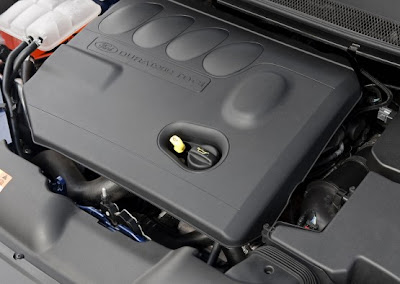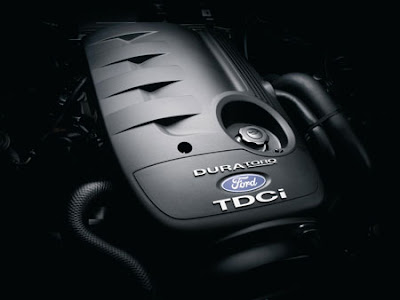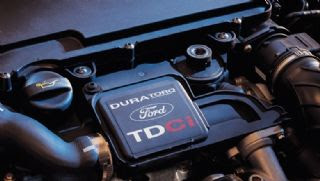Ford Mondeo Duratorq TDCi Part 2
Duratorq TDCi 2.0-litre achieves a peak torque output of 330Nm of torque at 1800rpm. That level of torque is 16 per cent higher than the Duratorq TDDi's output, using the same base engine architecture.
In addition, Ford's innovative transient overtorque technology generates an additional low-speed torque that contributes to Duratorq TDCi's mid-range flexibility and instant responsiveness. Transient overtorque technology uses sophisticated matching between the turbo boost, injection quantity and timing to push up the torque curve in the low rev range and thereby overcome the lag inherent in steady-state turbodiesel operation. For Mondeo Duratorq TDCi, this feature is combined with specifically tailored gear ratios to provide refined and easy acceleration in gear during normal driving conditions.
The Mondeo Duratorq TDCi accelerates from 0-62mph in 9.9 seconds and has a top speed of 125 mph.
In addition, Ford's innovative transient overtorque technology generates an additional low-speed torque that contributes to Duratorq TDCi's mid-range flexibility and instant responsiveness. Transient overtorque technology uses sophisticated matching between the turbo boost, injection quantity and timing to push up the torque curve in the low rev range and thereby overcome the lag inherent in steady-state turbodiesel operation. For Mondeo Duratorq TDCi, this feature is combined with specifically tailored gear ratios to provide refined and easy acceleration in gear during normal driving conditions.
The Mondeo Duratorq TDCi accelerates from 0-62mph in 9.9 seconds and has a top speed of 125 mph.



























